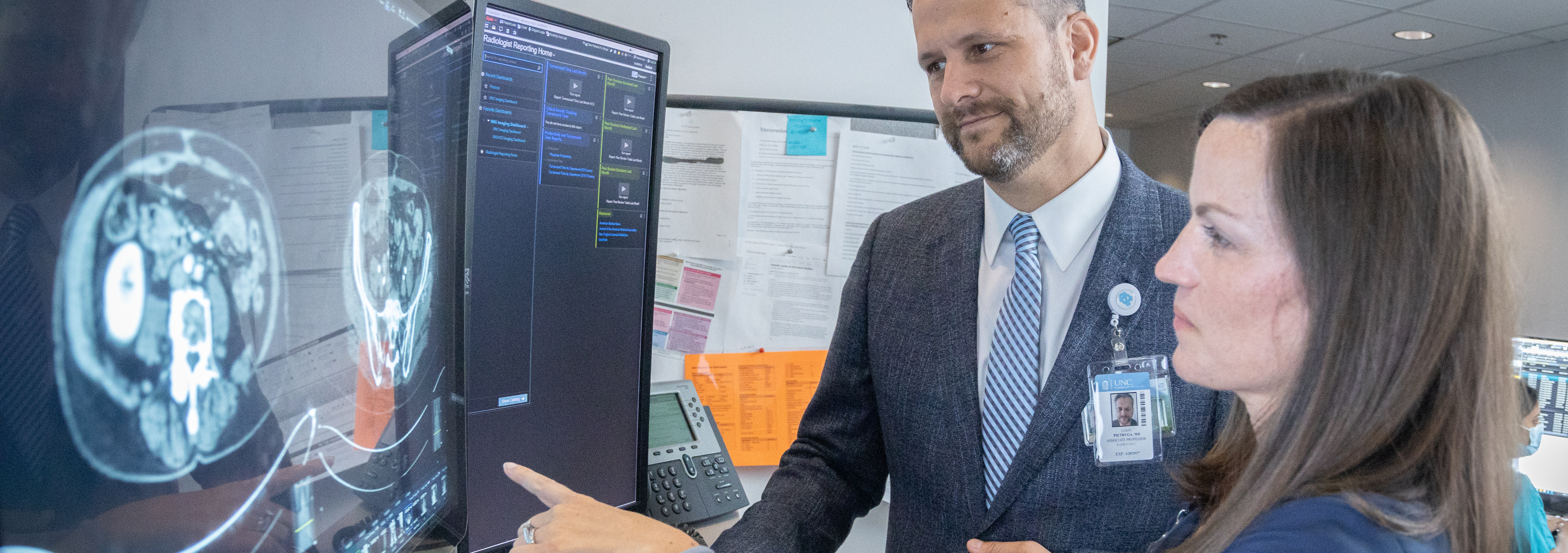There When It Counts
Emergency radiology is a radiology sub-specialty dedicated to swiftly and accurately diagnosing acute medical conditions and injuries in emergency room patients. By promptly providing crucial diagnostic information, our team of emergency radiologists enhance patient care, contribute to timely interventions, and work closely with Emergency Medicine and Acute Care (Trauma) Surgery to provide interpretations for complex trauma, surgical emergencies, and urgent medical conditions.
Our team of radiologists are doctors with training and expertise in diagnostic imaging performed in the emergency setting. In addition to having subspecialty training in abdominal radiology or neuroradiology, each of our physicians is highly skilled in the interpretation of radiography (x-ray), fluoroscopy, ultrasound, computed tomography (CT), and magnetic resonance imaging (MRI) for the diagnosis of emergent conditions. Our emergency radiologists contribute to the delivery of high-quality patient care by providing thorough and timely interpretations of diagnostic images. Our reports help the emergency medicine team make accurate diagnoses and start appropriate treatments.
Understanding the Experience
After you are seen in the emergency department, the medical provider caring for you may determine that you need a medical imaging study for your evaluation. In some cases, they may make this decision after consulting with one of our radiologists. As soon as possible, you will be brought to our radiology department, where the examination will be performed and interpreted by one of our specialists. All imaging results are immediately available to patients in My UNC Chart™.
Ultrasound examinations are usually completed in less than 45 minutes.
Most MRI examinations are completed in less than an hour, though some complex studies may take longer.

